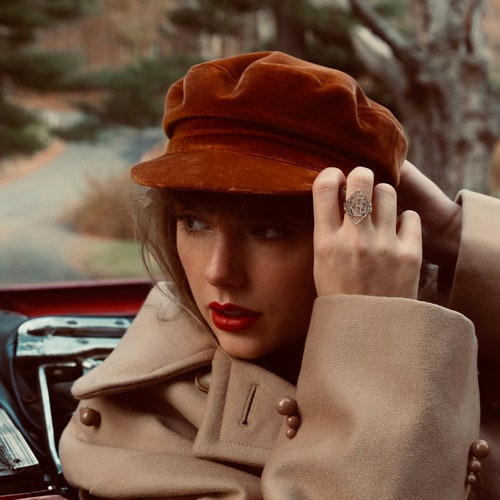Listen to “All Too Well (10 Minute Version) (Taylor’s Version)” by Taylor Swift
For almost a decade, fans and critics alike have mythologized “All Too Well” as Taylor Swift’s best song. In a 2012 interview, Swift mentioned that she originally wrote a 10-minute version of the song that she then edited down. Ever since, fans have awaited the moment when they might hear the extended version, an opportunity that finally arose when Swift announced she would be re-recording her 2012 album Red.
The original version of “All Too Well” is a supercut of epic emotion. Swift recalls every intimacy of a failed relationship in technicolor: the autumnal drive upstate, the late-night dance in the kitchen, the scarf that became her lover’s keepsake. She ties them together with cutting one-liners that explain, largely via accusations, why the romance fell apart: He was “casually cruel in the name of being honest,” and she, maybe, “asked for too much.” The song is a document of a young woman’s refusal to be forgotten, asserting the love she felt and gave as real. At the end, Swift deploys her classic perspective shift—first person changes to second—to drive the point home. Not only does she remember, but she knows he does too. He keeps her scarf for a reason.
The bar for a 10-minute version of “All Too Well” is almost impossibly high. Not surprisingly, this song isn’t exactly an improvement; the new expository details are interesting but not critical, and few of the new one-liners carry the same sting. Nor is it a near facsimile of the original, the way Swift’s rerecording of “Love Story” and most of Fearless (Taylor’s Version) was. Instead, the 10-minute song reflects how context and time have transformed her. These lyrics were ostensibly written in 2012, but the perspective in the added verses feels contemporary. The Swift who dodged a question about identifying as a feminist in 2012 probably wouldn’t have mentioned the irony of a shitty dude sporting a “Fuck the Patriarchy” keychain. The observation about his lovers staying the same age while she gets older feels more insightful now that it comes from a woman in her 30s.
The new turning point of the song is delivered with aged wisdom too. When her lover skips her birthday party (a reference to another heartbroken Red song) and her father reminds her, “It’s supposed to be fun, turning 21,” Swift seems to align with his adult perspective over that of her distraught 21-year-old self. “Time won’t fly/It’s like I’m paralyzed by it/I’d like to be my old self again/But I’m still trying to find it,” she sings in one of the song’s most claustrophobia-inducing lines. But day by day, year by year, a new self emerged.
